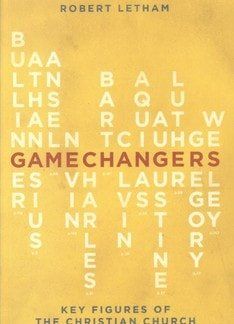In this unusual book, Robert Letham explores the influence of twelve individuals who have had a lasting impact on the theology or organisation of the church.
Inevitably, his choice of figures is a personal one. It is no surprise to see Augustine, Luther and Calvin; less obvious, perhaps, are Charles the Great, Heinrich Bullinger and J. W. Nevin. Other individuals covered are Athanasius, Gregory of Nazianzus, Anselm, Thomas Aquinas, John Wesley and Karl Barth.
Each chapter (around 15 pages) represents a self-contained portrayal of its subject. The style varies according to the biographical detail available or complexity of theology involved. This is not simply a gallery of heroes. Letham gives a critical assessment of life and doctrine and paints a ‘warts and all’ picture.
I question whether the subjects are measured against a common standard, or even by comparison with each other, for there are some odd conclusions. Charles the Great, for example, receives warm commendation for his energetic reforms of the church, which are described as a ‘stellar way to prepare the ground for the widespread preaching of the gospel’ (p.66), and it is only mentioned in passing that ‘his immorality was notable’ (p.55).
On the other hand, John Wesley gets a largely negative write-up on account of his Arminian doctrine and character flaws. His fruitful gospel witness is given little weight, except as a basis for criticism for an overly personalised approach to conversion. Even allowing for the differences of the times and circumstances in which the two men lived, this seems unfair.
Most of the time, however, Letham focuses on providing evidence for the reader to form his own judgement. The book is a concise summary of each subject’s life and thought.
It is refreshing to find an emphasis on Christian thinking and its long-term consequences, rather than events and personalities. I would be interested in a sequel, should the author feel that there are sufficient ‘game changers’ left in the annals of church history.
Alan Wells
Bromsgrove



